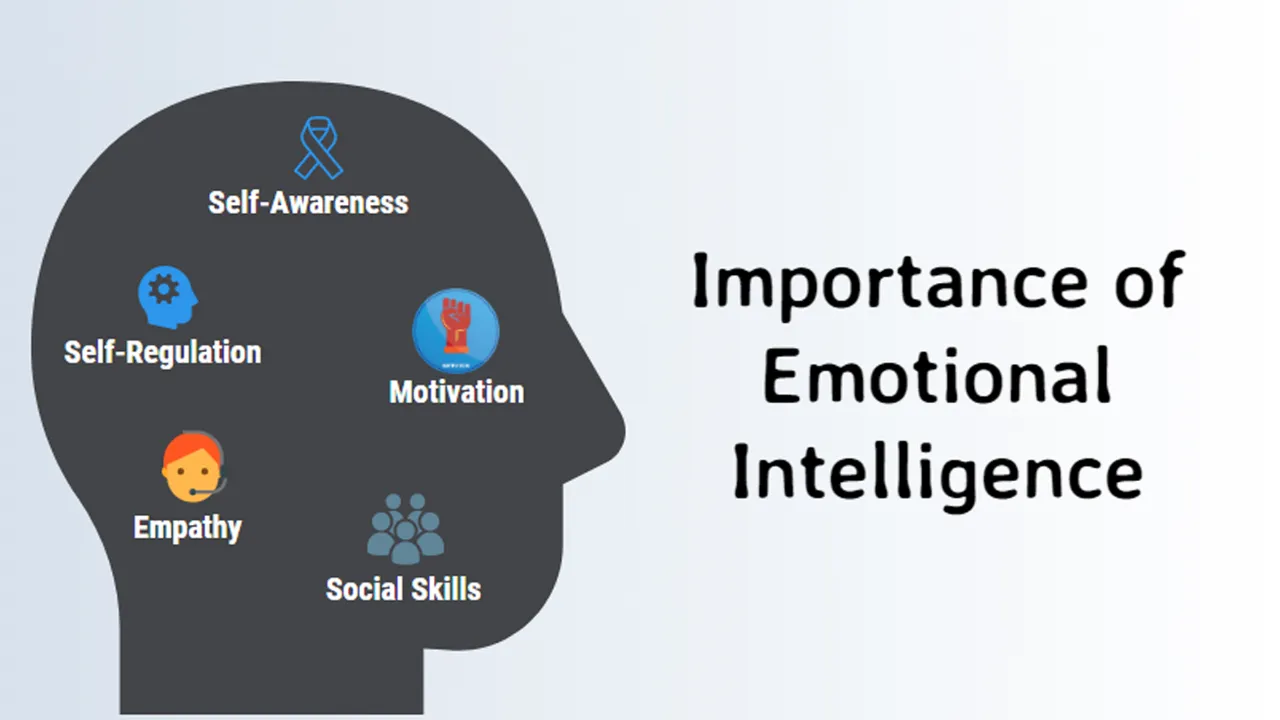Emotional Intelligence: The importance of emotional intelligence is growing every day as people realize that success isn’t just about being smart or skilled. It’s also about how well you understand emotions—your own and others’. Whether in your personal life or at work, emotional intelligence helps you manage relationships, handle stress, and make better decisions.
In this article, we’ll explore what emotional intelligence really means and how it plays a key role in both personal and professional growth. You’ll see how this skill influences communication, teamwork, leadership, and even your health. It’s not just a soft skill—it’s a life skill.
Importance of Emotional Intelligence
Understanding the importance of emotional intelligence starts with realizing it is more than just being “in touch” with your feelings. It’s about being self-aware, staying in control during challenges, and showing empathy in your interactions. This skill can improve relationships, increase resilience, and open doors in your career.
What is Emotional Intelligence?
Emotional intelligence, often called EQ, includes several core skills. These help people recognize, manage, and influence emotions effectively:
- Self-awareness: Knowing your emotions and how they affect your actions.
- Self-regulation: Managing reactions, staying calm, and being adaptable.
- Motivation: Staying driven and focused on goals even during setbacks.
- Empathy: Understanding what others are feeling and showing care.
- Social skills: Building strong relationships and communicating clearly.
These five components work together to help individuals succeed in many areas of life.
Why EQ Matters in Personal Life
Emotional intelligence plays a powerful role in personal success. It helps you build better relationships and manage stress in healthy ways.
Better Relationships
People with high EQ are better listeners and more empathetic. This means they handle conflicts more calmly and connect with others more deeply.
Improved Well-Being
Managing emotions reduces anxiety and boosts emotional stability. It encourages a positive mindset, which is key for mental and physical health.
Wiser Choices
High EQ leads to better decision-making because you can balance feelings with logic. You consider how choices affect both you and others.
Benefits of EQ in the Workplace
At work, the importance of emotional intelligence shows in everything from teamwork to leadership. It’s one of the top qualities employers now look for.
Strong Leadership
Leaders with emotional intelligence can guide their teams with empathy and confidence. They know how to motivate others, handle tension, and give helpful feedback.
Team Collaboration
EQ promotes trust and cooperation. People with strong emotional intelligence are often good team players because they know how to listen, understand different viewpoints, and resolve conflicts.
Clear Communication
Emotionally intelligent people are better communicators. They tailor their messages to different people and avoid misunderstandings.
Career Growth
Many companies value EQ just as much as technical skills. People with high EQ often rise faster in their careers because they handle stress, connect with others, and adapt to change.
Key Skills of Emotional Intelligence
Here’s a closer look at the five main areas of EQ and how they show up in daily life:
- Self-Awareness: You recognize when you’re stressed or frustrated and understand why.
- Self-Regulation: You stay calm under pressure and think before reacting.
- Motivation: You stay focused on your long-term goals even when facing challenges.
- Empathy: You can sense when someone is upset and offer the right support.
- Social Skills: You know how to manage group dynamics and maintain positive relationships.
How to Improve Emotional Intelligence
Improving EQ is possible for anyone. It starts with being honest with yourself and working on a few simple habits.
- Practice self-reflection. Take time to think about how your emotions affect your actions.
- Manage stress. Use calming techniques like deep breathing or short breaks to stay balanced.
- Listen actively. Pay attention to others without interrupting or judging.
- Show empathy. Try to understand how others feel and respond kindly.
- Communicate clearly. Be open, respectful, and mindful of your tone and body language.
With consistent effort, these habits can become part of your everyday behavior.
Quick Recap: Major Benefits of Emotional Intelligence
- Improved communication
- Stronger personal relationships
- Better conflict resolution
- Greater mental well-being
- Effective teamwork and leadership
- Faster career progression
FAQs
1. What is the main benefit of emotional intelligence?
It helps you understand and manage your emotions and build stronger relationships, both personally and professionally.
2. Can emotional intelligence be learned?
Yes, anyone can develop emotional intelligence through self-awareness, practice, and feedback.
3. Why is EQ important at work?
It improves teamwork, leadership, communication, and the ability to handle stress or conflict.
4. Is EQ more important than IQ?
In many real-life situations, yes. EQ helps you relate to people and make thoughtful decisions, which are often more impactful than raw intelligence.
5. How can I check my emotional intelligence?
You can reflect on how you handle stress, relate to others, and react in emotional situations—or take a reliable EQ assessment.
Final Thought
Understanding the importance of emotional intelligence can truly transform how you live and work. From building healthier relationships to excelling in your career, EQ is a tool everyone can benefit from. Start developing your emotional intelligence today—your future self will thank you.
If this article helped you, feel free to share it or leave a comment. Want to explore more topics like this? Check out related content on personal development and workplace success!











